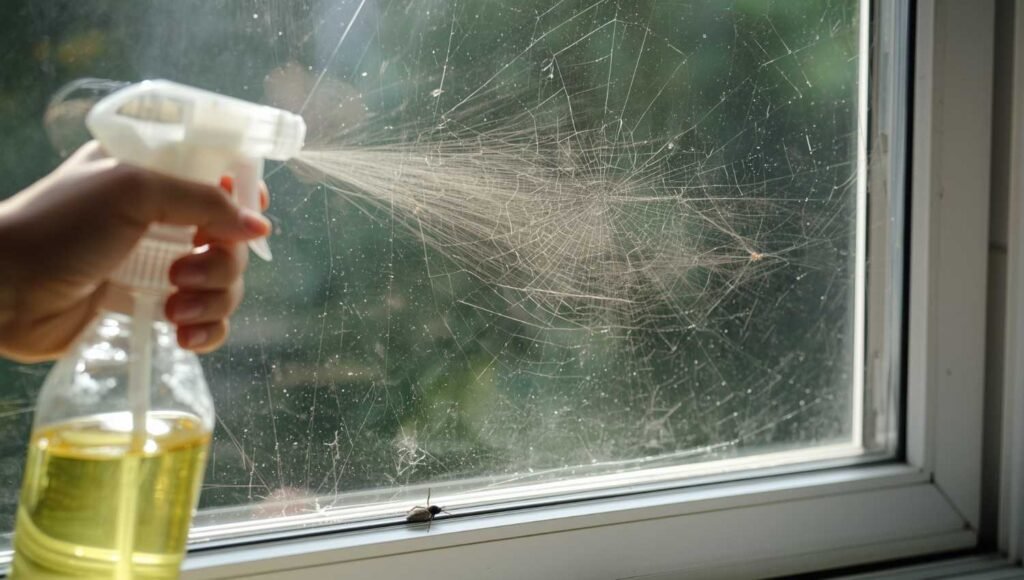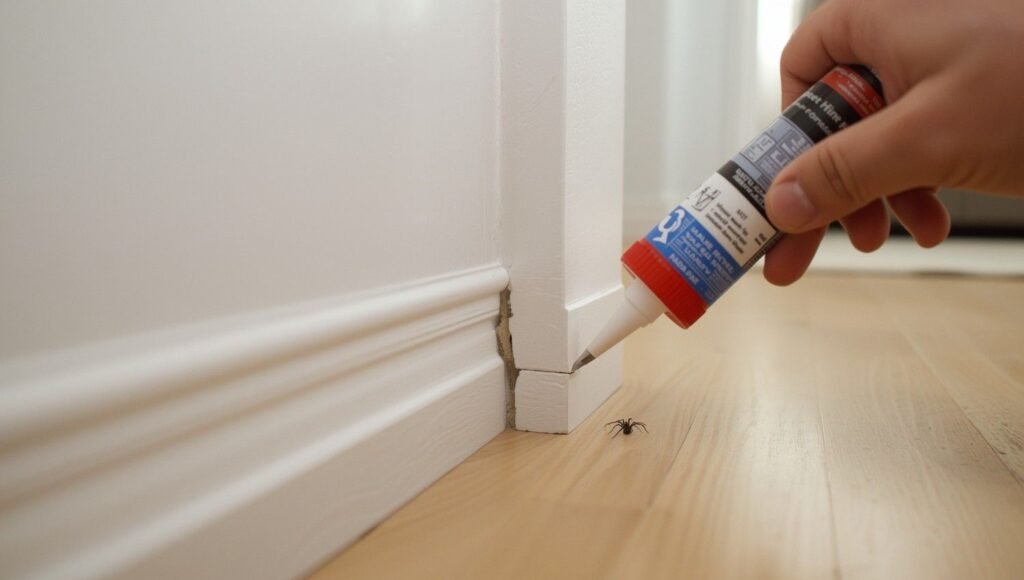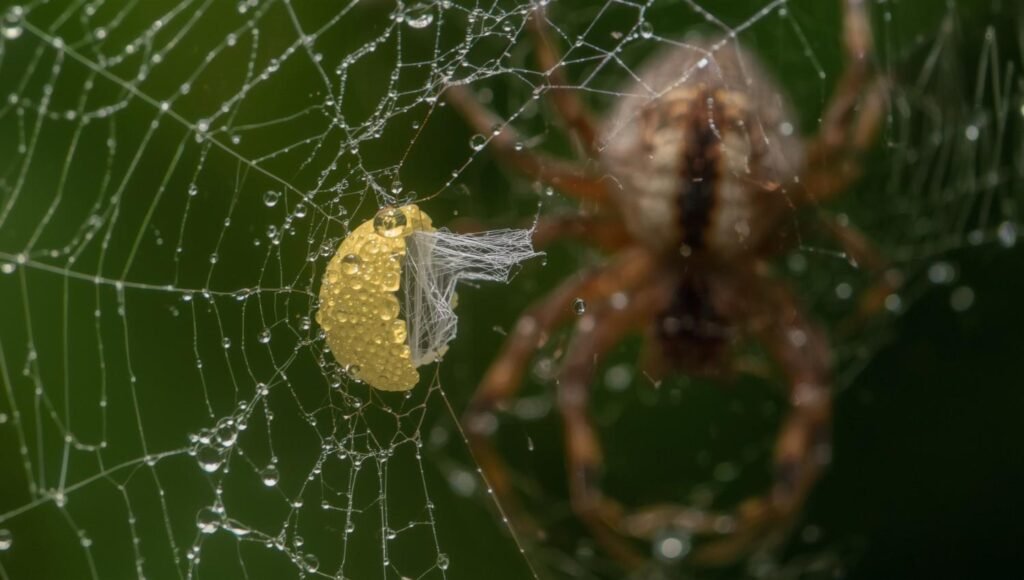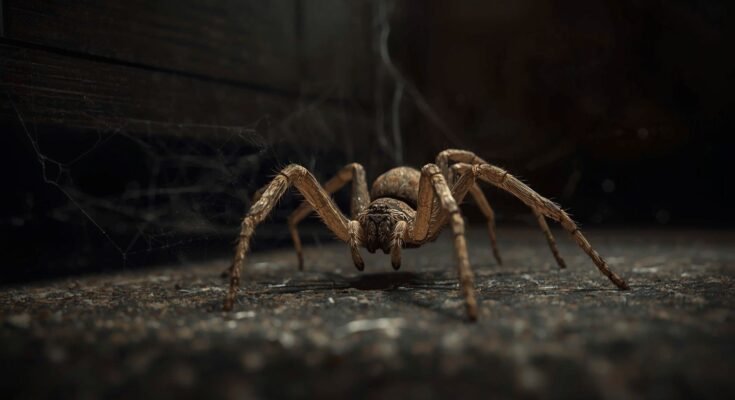Introduction
Living in South Florida, I’ve learned that our climate attracts all sorts of creepy crawlies, especially different spider species. From common house spiders to the more dangerous brown recluse and black widow, these uninvited guests often find ways into our homes. Over the years, I’ve discovered natural ways to deal with them that are safe for both family and pets. The right spider repellent can help shrink the spider population without causing any nasty side effects. Whether you’re facing a single spider or a full-blown web takeover, knowing where they’re hiding in secretive places is the first step. I’ve learned a few tips and ideas that make your home a lot less inviting for these eight-legged wanderers.
When I was a kid, I used to sing the Incy Wincy Spider nursery rhyme, watching it climb up the water spout before the rain came down and the sunshine dried it all away. Funny how that little song mirrors real life—spiders crawl in from the outside, looking for cozy homes to settle in. Many people’s first reaction when spotting one is to scream, feeling instantly afraid because of that deep phobia known as Arachnophobia. Just the sight of their legs and eyes can make you creep or shiver. You might find them in a dark corner, wardrobe, cabinet, or even under the wash basin, surrounded by cobwebs and egg sacs—tiny babies waiting to hatch. But don’t worry, this cheat sheet will guide you in getting rid of spiders naturally, making your space comfortable again for your family.
1. Use White Vinegar
When I first tried white vinegar as a household item to repel spiders, I was surprised by how well its acidic smell worked. Spiders simply can’t stand the smell, and when you mix vinegar and water in a spray bottle, you can target every corner—nooks, crevices, window sills, and doorways—to repel them. It’s a great short-term solution, especially as a DIY vinegar and water solution that acts as a temporary method to deter spiders from entering your home. However, these little creatures often crawl in from the outside, so precautions like proofing your home are key. Sealing gaps, cracks, and crevices along window sills and doorways prevents spiders from finding places to crawl in. With proper proofing, you’ll reduce the chances of attracting spiders by keeping their food sources—pests like cockroaches, cloth moths, and fruit flies—away. These insects are attractive food for spiders, so staying tidy really helps.
It’s also smart to be aware that while DIY solutions are helpful deterrents, a serious spider infestation may need professional control. Ignoring it could risk spider bites, which can be dangerous depending on the type or species involved. A trusted pest control company like Rentokil Pest Control in Indonesia has the experience to control the population and handle pest worries safely. If bitten, always seek proper medical attention from a doctor. And while dealing with spiders, don’t overlook stagnant water around your property—it becomes a breeding ground for mosquitoes. Their life cycle depends on stagnant fresh water where adult female mosquitoes lay eggs, which hatch and grow into larval stages. Keep an eye on buckets, tin cans, used tires, discarded tires, plate flower vases, kiddie pools, and pet water dishes—these sources of still water can invite pests, too. Eliminate them, and you’ll make your space safer from both spiders and mosquitoes.
2. Keep the Water Moving
When I learned how mosquitoes thrive in stagnant water, I realized how keeping a pond at home clean and with water moving also helps reduce unwanted pests that spiders might feed on. An installation of water features, such as a water fountain or water agitator, can limit the opportunity for mosquitoes to lay eggs. Their larvae can only survive in still water, so encouraging moving water makes a big difference. It’s not just about preventing mosquito breeding—it’s about creating a cleaner, pest-free environment overall.
To keep your ponds tidy, do a regular cut off of any vegetation around the pond edges. This step prevents overgrowth and reduces places where insects and spiders could hide or nest. By managing water flow and vegetation together, you naturally discourage both mosquitoes and the pests that attract spiders—a simple yet effective way to maintain a healthier home ecosystem.
3. Install Insect Screens to Windows and Doors
One of the best ways to protect your yard and home from mosquito problems and other pests that attract spiders is by installing insect screens on your windows and doors. This simple barrier helps keep outside unwanted pesky insectsthat often find their way indoors, while also keeping the air cool and breezy inside. I’ve found that a properly fitted screen is an ideal way to enjoy fresh air without the constant worry of bugs or spiders sneaking in.
Not only do these screens block mosquitoes, but they also reduce the number of small insects that serve as food for spiders—keeping your home naturally safer and cleaner. When you run your ventilation through open windows, the mesh creates a subtle but strong defense, allowing you to relax knowing your home is protected from tiny invaders looking for a cozy place to settle.
4. Grow Some Mosquito-Repelling Plants in Your Garden
I’ve always loved my garden, not just for its beauty but for how growing the right mosquito-repelling plants can make it one of the easiest and cheapest ways to reduce mosquitoes around your property naturally. Certain plants emit strong scents that are repulsive to insects and can deter mosquitoes and repel naturally without using harsh chemicals. I’ve planted lemongrass, lavender, rosemary, catnip, lemon balm, geraniums, basil, and mint—and not only do they smell amazing, but they also keep my yard pest-free. This simple mix of nature’s fragrances makes spending time outdoors relaxing again.
5. Remove Mosquito Resting Areas
Understanding mosquito species and their habits helped me realize they’re most active at night, during dawn and evening hours, while preferring dark, sheltered, and undisturbed places in the daytime. To reduce the likelihood of mosquitoes flying around your home, start by removing areas that promote mosquito harborage both inside and outside the house. Their resting places can vary depending on behaviour, but generally, outside the house, they rest on tall grass and shrubs. I make sure to trim my lawn regularly and keep it away from the foundation and yard to make it less attractive as a resting area.
Inside the house, the Aedes Aegypti mosquito has indoor resting preferences, often hiding under furniture, on hanging utensils in the kitchen, or hanging used clothes in the bathroom. This Aedes mosquito is drawn to substances like amino acids, body heat, odour, and sweat, so keeping spaces clean and dry is essential. With a bit of routine and awareness, you can stop them from turning your home into their hideout.
6. Keep Your Gutter Clean and Free from Debris
Your gutters play a big role in pest prevention, and keeping them clean from debris is a part of good home maintenance. Leaves can clog waterways, creating mosquito breeding grounds, a perfect place for pests to thrive. Regular cleaning keeps both mosquitoes and spiders at bay.
7. Keep the Cool Temperature Inside the House
Maintaining a cool temperature inside the house not only makes living spaces more comfortable but can also discourage pests that thrive in warmth, including spiders.

Are Spiders a Threat?
Many people fear spiders, but not all spider species are dangerous. Most are harmless and easy to kill with a tissue or a quick spray product. However, some venomous ones deserve caution, especially when you’re dealing with any eight-legged critter you’re unsure about. In my experience, understanding which species pose a real threat helps you stay calm and handle things the natural way—no panic, just awareness and smart prevention.
How to Keep Spiders Away?
To fight spiders, start with practical tips that make your home less welcoming. Regularly remove spider webs using a broom or vacuum cleaner attachment, and keep trash, lumber piles, bricks, and other outdoor structures tidy to prevent spiders from settling nearby. Trim trees and shrubbery so they don’t make contact with your home, as these areas help them hide and find easy access points indoors. Also, remove clutter in garages, basements, and storage areas where spiders often hide indoors. Ensure doors, windows, and window screens are sealed and intact to block new visitors.
It’s just as important to eliminate food sources for insects through cleaning—wipe up food spills, drink spills, and keep everything in sealed containers that are air-tight. These habits reduce prey, which means fewer spiders. If you spot venomous spiders like the black widow, brown widow, or brown recluse, be careful—their bites can be painful and dangerous. Call a professional pest-control company for help, especially if you see more than one. Early contact with experts prevents a bigger problem later.
– Squish the Sac
If you notice a spider egg sac on a web or attached to a female spider, destroy it immediately. Each sac can contain several hundred eggs that hatch into new spiders, quickly multiplying your problem. Good spider control means stopping the cycle as early as possible, before those tiny sacs unleash more eight-legged roommates.

Spider-Control Products
Sometimes one spider isn’t worth the risk. You can pick it up with a tissue, but if spraying feels safer, try Raid products made to control spiders. They kill spiders on contact with bug spray, and for heavy infestations, you can attack spiders where they hide using a fogger product. A bug barrier can also prevent insect infestations that attract spiders. Always read the label and use all spider control products as directed for the best results.
Key Takeaways

Natural repellents like peppermint oil, citrus peels, and other essential oils can keep spiders away around entry points. Clean up spider webs, fix unsealed cracks, and ensure your surroundings are sealed and cleaned. Reduce clutter in storage areas where spiders hide or build webs, and try diatomaceous earth or chestnuts for a safe, chemical-free solution. If natural methods don’t work, spider control services can restore your home to a peaceful, pest-free space.
1. Use Peppermint Oil Around Entry Points
When I first used peppermint oil as one of my favorite natural repellents, I was amazed at how effective it was. Just mix water, a bit of white vinegar, and a few drops of peppermint essential oil in a spray bottle. Then spray around entry points such as windows, baseboards, and door frames to repel different spider species, including the brown widow. It’s a simple method that keeps your home smelling fresh while driving away unwanted arachnids naturally.
2. Clean Up Spider Webs and Cobwebs Promptly
The easiest way to discourage spiders is to remove their spider webs and cobwebs right away. These webs trap food, encouraging them to stay. I always vacuum or sweep every corner of my house, especially basements, attics, and closets where they love to hide. Regular cleaning keeps your home spider-free and fresh.
3. Seal Cracks, Crevices, and Gaps
Spiders don’t need much space to sneak into your home—tiny gaps, door frames, crevices, or walls are enough. Check for cracks around pipes and seal them with caulk or weatherstripping to close drafty doors and windows. This also blocks household pests like cockroaches and roaches, which attract spiders looking for food.
4. Get Rid of Their Food Source
If you have spiders, chances are they’re chasing dinner. An infestation of fleas, cockroaches, or flies acts as their food source. Regular cleaning and help from a pest control company can cut off their supply chain, making your home far less inviting.
5. Use Diatomaceous Earth in Hiding Places
I’ve had great success using diatomaceous earth (DE) in hiding places such as under furniture, behind appliances, and inside wall gaps. It helps control spiders and other insects while staying safe for people and pets. Studies show reduced insect populations even under natural storage conditions. Sprinkle it near woodpiles, garage corners, or anywhere spiders like to hang out.
6. Switch to Spider-Safe Outdoor Lighting
Bright outdoor lights tend to attract moths, insects, and, therefore, spiders. I switched my bulbs to yellow-toned and motion-sensor lights to reduce the effect around doors and windows. The difference was clear—fewer bugs, fewer spiders.
7. Use Citrus Peels as a Natural Deterrent
Citrus works surprisingly well as a gentle deterrent. Rub orange peels or lemon peels along windowsills and doorways, where spiders might crawl through. You can also soak peels in water overnight, pour the mix into a spray bottle, and create a refreshing repellent. The sweet orange and lime peels have been shown to reduce pest activity in cockroaches, houseflies, and mosquitoes, and citrus can repel naturally too.
8. Place Chestnuts in Key Areas
I’ve placed chestnuts around my home, especially in closets, corners, and under sinks. They seem to discourage spiders thanks to their scent, which some arachnids find off-putting. It’s an old trick that still works.
9. Declutter Your Storage Areas
Spiders thrive in undisturbed areas filled with cardboard boxes, so I replaced them with plastic bins in my attics, basements, and storage rooms. By reducing clutter, you remove potential hideouts and make your home easier to maintain.
10. Use a Blend of Essential Oils Like Tea Tree and Eucalyptus
Beyond peppermint, essential oils like tea tree, eucalyptus, and citronella oils are just as effective. Mix them with water and a touch of vinegar in a spray bottle, then mist around baseboards, windowsills, and corners to repel spiders naturally. Your home will smell amazing and stay pest-free.
Conclusion
Getting rid of spiders doesn’t have to be stressful or complicated. With simple natural methods like peppermint oil sprays, citrus peels, and diatomaceous earth, you can keep your home cleaner, safer, and spider-free without relying on harsh chemicals. Taking a few preventive steps—like sealing cracks, removing webs, and decluttering storage areas—goes a long way in ensuring that spiders and other insects stay outside where they belong. By keeping your home environment tidy, well-sealed, and fresh-smelling, you’ll not only stop spiders from settling in but also create a peaceful, pest-free space for your family and pets to enjoy.
FAQs
1. Why do spiders come into the house?
Spiders usually enter homes in search of food, shelter, or warmth. They’re attracted to areas with insects, clutter, or unsealed gaps that make easy entry points.
2. Are all spiders dangerous?
No, most spider species are harmless. However, venomous spiders like the black widow or brown recluse can be dangerous, so always exercise caution if you’re unsure.
3. What smells do spiders hate the most?
Spiders dislike strong scents such as peppermint oil, citrus, tea tree, and eucalyptus. Spraying these around entry points helps keep them away naturally.
4. How often should I clean spider webs?
It’s best to remove spider webs and cobwebs as soon as you notice them. Regular cleaning—especially in basements, attics, and closets—discourages spiders from returning.
5. Does vinegar kill spiders?
White vinegar doesn’t kill spiders instantly, but its acidic smell repels them effectively. When mixed with water and sprayed in corners or window sills, it works as a great short-term solution.
6. What should I do if I get bitten by a spider?
If the bite causes severe pain, swelling, or other reactions, seek medical attention immediately. Try to identify the species if possible, but don’t risk getting too close to the spider.
7. Can professional pest control help?
Yes. If you have a spider infestation or recurring problems, contact a professional pest-control company. Experts can identify species, locate nesting spots, and safely control the population long-term.
8. How do I stop spiders from coming back?
Maintain a routine: keep your gutters clean, seal cracks, use natural repellents, and remove anything that could attract insects. Consistency is key to long-term prevention.




